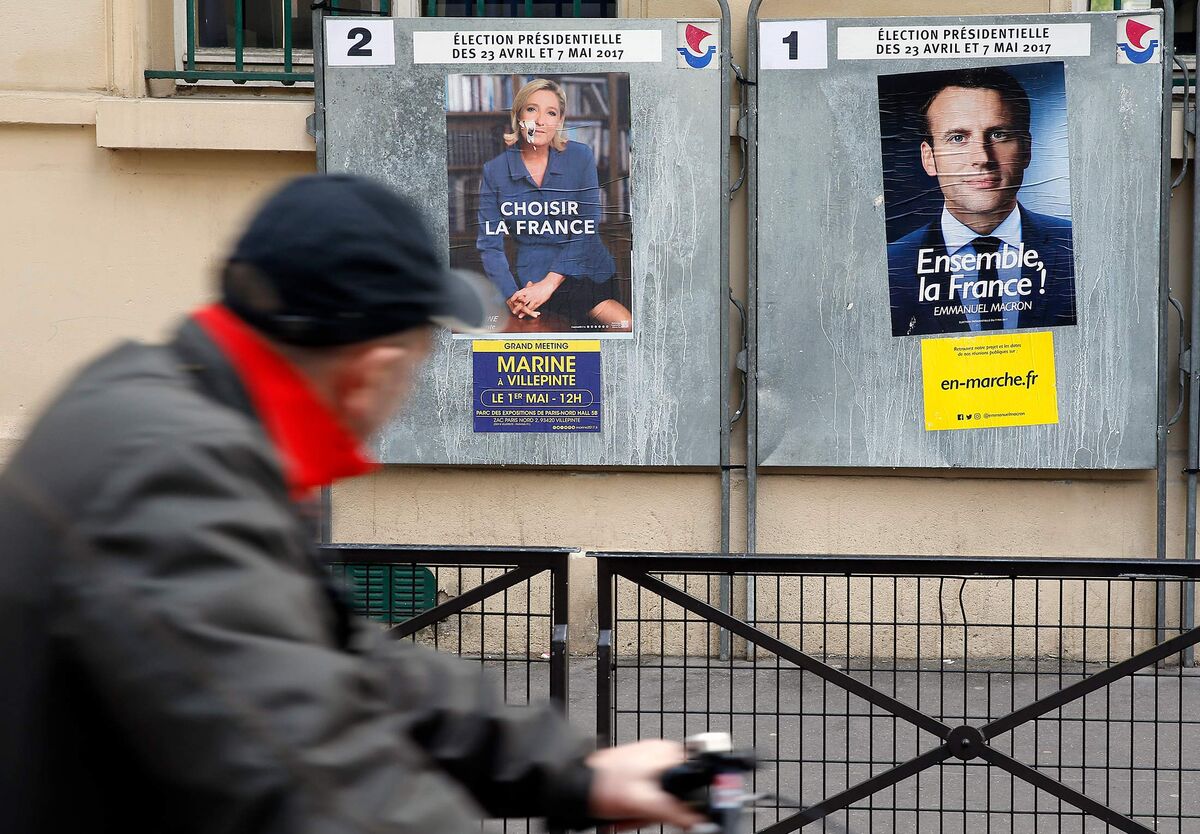
French voters go to the polls on Sunday to pick their new president, a stark choice between front-runner Emmanuel Macron and far-right Marine Le Pen, and between globalization and populism.
Voting takes place after a bitter campaign that culminated in an acrimonious debate between the two candidates on Wednesday and a statement from Macron’s camp late Friday that their emails had been hacked. Macron, 39, held a commanding lead in opinion polls going into the legally-enforced campaign blackout, which started at midnight Friday. Le Pen, 48, is on track to deliver the strongest-ever showing in a presidential election for her National Front party.
Voting starts in mainland France at 8 a. Projections and first results will be released from 8 p. Pollsters participate in the count and project the final results based on past voting habits, while the early count is skewed to rural areas, where polls close one hour earlier than in big cities.
Macron and Le Pen are vying to lead a country that is politically divided. During the first round of voting on April 23, about 45 percent of votes were cast for candidates who rejected the current economic order as well as France’s existing ties to the European Union. Neither the Socialists nor the Republicans, pillars of the country’s political establishment, qualified for the final round, the first time that’s happened since Charles De Gaulle ushered in the Fifth Republic in 1958.
“This election is about the defense of the euro,” Dominique Reynie, politics professor at the Sciences Po institute in Paris, said in an interview. “And it’s about the fracture running through France like other western democracies between those who succeed thanks to globalization, and those who pay the price for it.”
Macron will vote in the resort of Le Touquet on the English Channel, while Le Pen will vote in Henin-Beaumont, her stronghold in northern France. Both will then head to Paris for election night rallies with their supporters.
A Macron victory would mean that French voters will have broken with populist movement that put the U. on track to leave the European Union and carried Donald Trump to the White House.
A win for Le Pen would be a devastating blow to Europe’s post-war project of political unification and would likely unleash a financial market selloff as new concerns about the euro currency’s viability resurface. Le Pen posted her party’s biggest-ever vote in the first ballot.
Whether she wins or not, Le Pen has conquered the depressed towns of industrial decline in the north and east, building on the National Front’s traditional heartland of the south. France’s unemployment rate remains stuck at 10 percent, roughly double the levels in the U. and Germany -- a major challenge to the next president.
“To succeed in terms of jobs is of the essence if we want to respond to this anger,” former European Central Bank President Jean-Claude Trichet told Bloomberg Television Friday.
Voter anger, however, was not what dominated the final hours before campaigning stopped. As Macron’s team said it was subject to a “massive” cyber attack in the form of the publication of campaign emails in addition to false documents.
The country’s electoral control commission requested media to refrain from disseminating details of the leaked material. News of the hacking complaint was picked up by print media including Le Monde newspaper and Agence France-Presse and debated on social media, though broadcasters remained largely silent on the matter Saturday.
Le Pen aide Florian Philippot suggested that the media had avoided scrutinizing Macron thoroughly.
“Will the #Macronleaks uncover things that investigative journalism has deliberately killed?” Philippot said in a tweet just before the blackout began. “Frightening democratic shipwreck.


0 comments:
Post a Comment